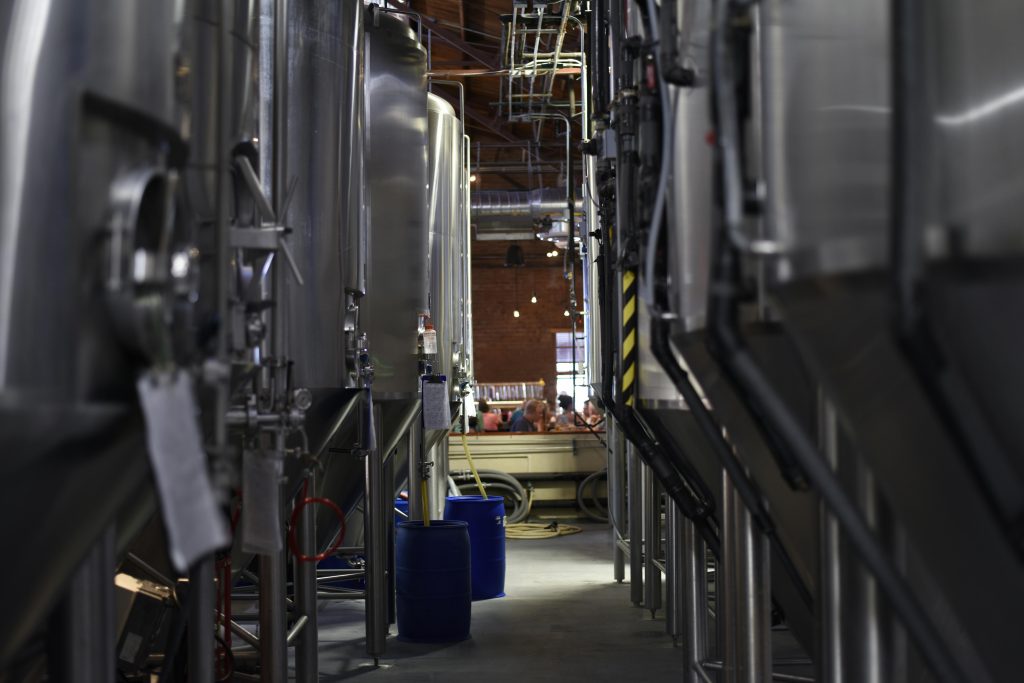In recent years, artificial intelligence (AI) has emerged as a transformative force in the manufacturing industry, revolutionizing traditional processes and driving significant improvements in efficiency and quality control. From predictive maintenance to intelligent automation, AI-powered solutions are reshaping the manufacturing landscape, enabling companies to optimize operations, minimize downtime, and enhance product quality.
Artificial Intelligence Predictive Maintenance
Predictive maintenance stands as a cornerstone of modern manufacturing, leveraging the power of artificial intelligence to revolutionize traditional maintenance practices. By harnessing historical data and real-time sensor readings, AI algorithms can anticipate equipment failures before they occur, offering a proactive solution to maintenance challenges. This predictive approach enables manufacturers to preemptively address potential issues, mitigating the risk of costly unplanned downtime. Moreover, AI-driven predictive maintenance allows for the optimization of maintenance schedules, ensuring that resources are allocated efficiently and machinery downtime is minimized. By identifying impending failures early on, manufacturers can take preventive measures to extend the lifespan of their machinery, ultimately enhancing operational efficiency and reducing maintenance costs. The transformative impact of predictive maintenance in manufacturing underscores the pivotal role that AI plays in driving innovation and optimizing performance in today’s industrial landscape.
Intelligent Automation
In the realm of manufacturing, AI-powered automation stands as a transformative force, revolutionizing traditional operations and propelling industries into a new era of efficiency and productivity. By integrating advanced robotics and machine learning algorithms, manufacturers can deploy autonomous systems capable of executing repetitive tasks with unparalleled speed, precision, and consistency. This automation not only minimizes the reliance on manual labor but also streamlines production processes, resulting in heightened throughput and reduced operational costs. AI-driven automation optimizes resource allocation, freeing up human capital for strategic tasks while handling routine operations. Manufacturers can boost agility, scalability, and profitability for sustained success in a competitive market.
Ensuring Product Consistency

Quality control is crucial in manufacturing, ensuring products meet strict standards. Traditional inspection methods often involve human inspectors, but the advent of artificial intelligence (AI) has revolutionized quality assurance. AI inspection systems utilize computer vision and machine learning to analyze data, accurately detecting defects efficiently. These systems can process vast data in real-time, detecting subtle defects overlooked by humans. They are immune to fatigue or bias, ensuring consistent, objective product quality assessments. AI inspection systems boost productivity by automating inspections, cutting time and labor, streamlining production, and speeding up time-to-market. They also improve product quality by minimizing defects escaping detection.
Enhancing Efficiency
AI can significantly improve supply chain management by optimizing operations through data analysis. AI algorithms can analyze extensive production data to uncover patterns and trends challenging for human analysts. This data-driven approach helps manufacturers understand supply chain dynamics, make informed decisions, and optimize inventory levels. AI can identify inefficiencies in production, transportation, and warehouses to streamline logistics, reduce lead times, and lower costs.
Embracing the Future of Manufacturing with AI
As artificial intelligence (AI) continues to advance, its influence on the manufacturing sector is poised to become even more profound. Manufacturers can enhance efficiency, productivity, and quality by utilizing AI for predictive maintenance, automation, quality control, and supply chain optimization. Predictive maintenance helps companies address equipment issues early, reducing downtime and maximizing operational uptime. Intelligent automation streamlines processes by delegating repetitive tasks to AI-powered systems, freeing up human resources for more strategic endeavors. Quality control systems enhanced with AI can swiftly detect defects and anomalies, ensuring that products meet the highest standards. AI-driven tools help manufacturers forecast demand, optimize inventory, and reduce costs for smoother operations. AI in manufacturing is crucial for success in an evolving landscape where innovation and resilience are key.

















